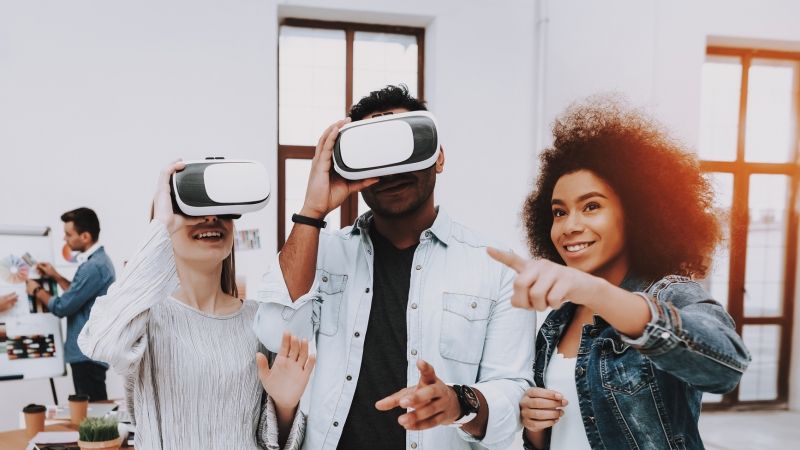As event planners become more selective and competition increases for group business, many hotels are embracing new technology to help them break through the clutter. One of those tools is virtual reality for hotel marketing, an almost magical solution that gives decision-makers the ability to get a feel for a property — before they ever step foot onsite.
Virtual reality is a game-changer for hotels and destination marketing organizations (DMOs) as they compete to fill their marketing funnels with prospects. For example, meeting planners considering Los Angeles as a destination can explore the city from thousands of miles way, without ever visiting California. Specifically, The Meet L.A. virtual discovery tour provides a fully immersive, 360-degree experience of more than 50 popular destinations in Los Angeles. Let's take a look at the best practices for properties using virtual reality today.
Discover the best ways for hotels to use virtual reality:
1. Create a tour of the property amenities on your website
The L.A. Tourism and Convention Board isn't the only destination or venue marketer using VR. Marriott IndyPlace, for example, is using immersive video to market its five-hotel complex to meeting and event planners. The Marriott IndyPlace website features four, 360-degree immersive VR tours related to planning and attending meetings, as well as videos touting various onsite amenities. A meeting planner thinking about Indianapolis can get a nice feel for the properties from the comfort of an office in another state, or even another country.
Use 3D diagrams to showcase meeting space
2. Showcase the distance from other properties and local hot spots
Virtual reality lets meeting planners experience how each hotel within Marriott IndyPlace is connected via indoor walkways not only to every meeting space, but also directly to the Indiana Convention Center and Lucas Oil Stadium, home of the Indianapolis Colts football team.
3. Create an in-room hotel tour for guest rooms and meeting spaces
Decision-makers can remotely preview guest rooms, restaurants, lounges, and meeting spaces by watching the IndyPlace VR videos. That can inform choices on everything from whether to hold a meeting in the city to which property is the right choice for a particular group or event. Marriott IndyPlace worked with the team at WeCreate Media to produce its four VR videos.
Virtual reality for hotels is effective marketing
The benefits of VR aren't just hype. The results of a recent study by researchers at Ryerson University concluded that VR helps generate positive emotions toward a destination and offers a more engaging form of advertising. What's more, VR can help "make an event" by giving event planners a preview of destinations and venues and a way to share that experience with other key stakeholders and decision-makers.
"VR has great potential for destination promotion because of the immersive sensations it can offer and its ability to communicate how a distant place or experience feels," the Ryerson report says. "As a promotional tool, VR has the potential to reduce perceived risk of intangible services, helping travelers make more informed decisions with more realistic expectations."
Meanwhile, another study, conducted by researchers at the Hong Kong Polytechnic University, analyzed the persuasive power of VR as a destination marketing tool. "The findings in this study," the report concludes, "demonstrate the potential of VR imagery to induce interest in experiencing tourism destinations and provide implications for marketing strategies as well as design and usability aspects of VR technologies."
At the end of the day, hotel brand marketing requires differentiation. VR is a tool that can help a hotel's marketing stand out from the crowd. Up next, learn more about tracking your hotel's competitors.






